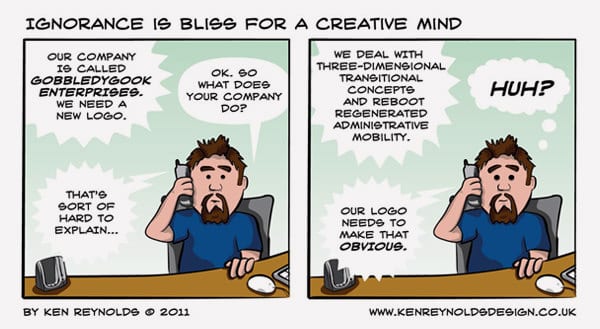
Six top tips for ensuring a harmonious agency:client relationship
Getting an agency or freelancer in to take care of your content marketing strategy can bean excellent way to get fresh ideas and expertise for your marketing strategy, as well as freeing-up your internal team. However, relationships between clients and their external partners often require careful management and mutual understanding.
Here are six absolute musts to achieving a harmonious working agency: client relationship:
1. Determine what you need and set clear objectives
One of the biggest challenges for any content agency or freelancer arises when a client doesn’t really know what they want, but has a very clear idea of what they don’t want.
To some extent, freelancers will be familiar with this and many have honed a technique to get the right information out of their clients. This doesn’t mean, however, that you can rely on them to second-guess what you are looking for.
If you don’t provide clear objectives at the start of a campaign, you are going to spend a lot of time shooting down excellent ideas, well-crafted content and interesting approaches. This can be frustrating for both parties and quickly adds a negative element into the relationship.
Whoever you approach to take care of your content, try to point them down the right path and you’ll all reach the desired final destination much more quickly.
2. Keep an open mind
Why are you outsourcing content in the first place?
Is it because you simply don’t have the time or resource in-house or is it because you are keen to get a new perspective, a new way of thinking and new expertise involved in your content marketing?
Inviting people from outside the confines of your own business can be a great way to inject new thinking into your content, but be aware that you might be faced with some very different propositions to what you’ve been used to – and, for some, that can be a challenge in itself.
3. Give your agency the right tools for the job
One phrase that has the impact of a dagger to the heart of most freelancers and content agency staff is “It’s good, but it’s not on-brand”.
Despite their best possible intentions, people from outside aren’t going to be as au fait with the nuances of your business from the get go as you are.
To avoid this uncomfortable situation, discuss your brand guidelines, tone of voice and brand message with them from the outset. If the marketing manager and the brand manager are two different people, make sure both are introduced to whoever is providing your content. If you work with multiple agencies then introduce them as well, to ensure everyone is working towards the same goal.
4. Let your freelancers get on with the job
Many businesses rightly adopt robust and stringent compliance procedures, either from a self-imposed branding perspective or a legal and regulatory one – or sometimes a combination of both. In the main, copywriters will be familiar with this approach.
However, while freelancers might be accustomed to working within such restrictions, there’s no getting away from the fact that creativity can be stifled.
To get around this, try to fast-track your content providers through your business’ internal sign-off process.
First, make it clear to them what is an absolute no-no in the eyes of your compliance officer.
In the early stages, work closely with freelancers to define some boundaries but avoid being overly restrictive. Boundaries should not include everything you’ve been doing for the past five years.
Of course, this doesn’t mean breaking all manner of rules that could land you both in trouble with the branding manager and various regulatory bodies.
Just ask yourself; “Is an extra pair of eyes really necessary?”
If the answer is “Yes”, then introduce the relevant person to your content providers. If an extra pair of eyes isn’t required, then it’s time to meet the next risk to your harmonious relationship…
5. Delayed decisions mean delayed deadlines
Changed deadlines frustrate everyone involved. They’ll irritate your copywriters, they’ll infuriate your MD and they’ll cause you no end of problems.
Work to minimise any hold-ups as much as you possibly can.
While most freelancers and agencies will always try and get a project back on track, constant delays in feedback and decision making can put your working relationship to the test.
Minimise delays by setting clear objectives, defining guidelines and providing prompt feedback.
6. Feedback, Feedback, Feedback
Feedback is the lifeblood of any harmonious client-agency relationship. So, make sure that you provide an honest constructive critique on everything your agency provides you with.
Don’t be afraid to decline an agency’s suggestion – they’re more than used to it. But, do tell them why you’re not so keen on their ideas when they are suggested. If you don’t provide this feedback, you shouldn’t be surprised when a similar, albeit in a slightly differently guise, idea appears in your inbox in the near future.
A good relationship with your creative agency can be one of the most rewarding in business, so allow them to do what they do best.
Remember: if your agency’s work succeeds, you’ll succeed – and that’s a win-win relationship.

Thanks to
Michael Hewitt for sharing their advice and opinions in this post. Michael is a Content Manager at digital agency,
Stickyeyes. You can follow him on
Twitter or connect on
LinkedIn.
With thanks to smashingmagazine.com for use of this image.




 Thanks to
Thanks to 


